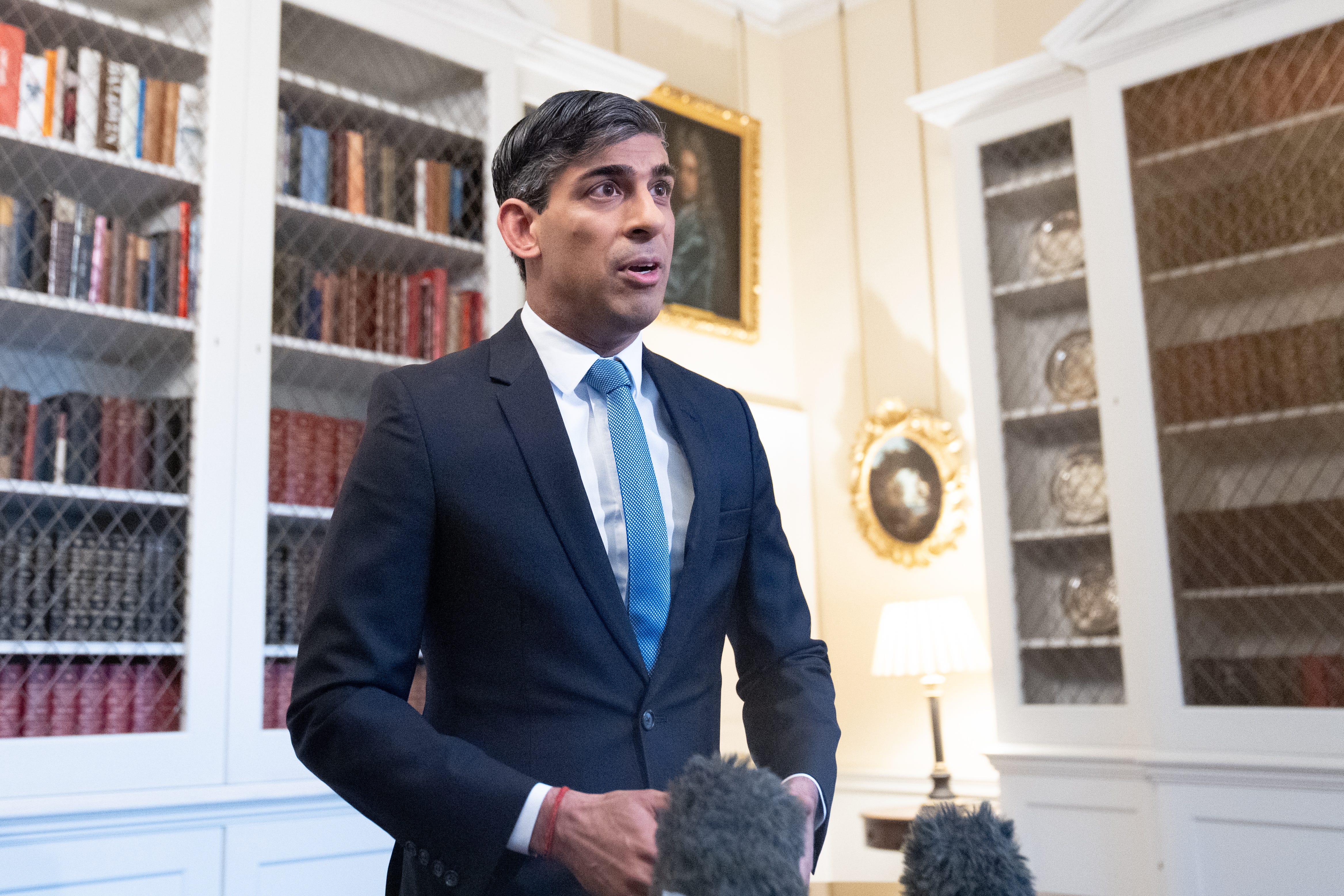Inflation is down – but good news for homeowners will have to wait
Headline inflation fell to 2.3 per cent in April, but dig deeper and the economic picture looks less rosy, writes James Moore. The Bank of England is unlikely to provide a much-hoped-for cut in interest rates – and mortgage costs – next month


Across the economy, price rises slowed significantly in April with the rate of inflation declining to 2.3 per cent from 3.2 per cent. That is the lowest level for three years and is now within sight of the Bank of England’s hallowed 2 per cent target.
Combined with faster-than-expected economic growth – the first quarter delivered a bounceback from recession and the International Monetary Fund has just upgraded its UK forecast for the year – the numbers seem to be coming good for embattled Rishi Sunak and his chancellor Jeremy Hunt.
They promised to halve inflation when the figure was 10.7 per cent. This has been achieved. While the Bank of England controls the main lever, we have to credit the government for largely aligning fiscal (tax) policy with the Bank’s monetary policy (interest rates) so they don’t work against each other. This is something Liz Truss notably failed to do. Given where inflation is now, that’s one tick. First quarter gross domestic product – the overall size of UK plc – grew by 0.6 per cent. Another tick.
But the PM’s ripe-looking apple has a bruise or two. By far the biggest is that these numbers have probably killed off the chances of a June interest rate cut.
The first problem is that the fall was less than expected. The regular Reuters poll of economists called for 2.1 per cent. This is the second month in a row that inflation has come in higher than the City had estimated.
Britain is still in much better shape than the United States, where inflation has been heading north again. But there were some real nasties lurking in the guts of the figures.
Prices fell largely because of the reduction in regulator Ofgem’s energy price cap. Grant Fitzner, chief economist at the Office for National Statistics, also highlighted tobacco (no duty changes were announced in the budget) and food price inflation which fell to 2.9 per cent. The return of the latter to normality is a big deal for the average consumer. The price of the weekly shop is still rising, just by a lot less than it was.
Unfortunately, the closely-watched core inflation figure – which strips out volatile indications such as food, energy, alcohol and tobacco – has proved troublingly sticky. It fell, but only to 3.9 per cent from 4.3 per cent.
The real monster under the bed, however, has been the price of services. Services make up the biggest part of the UK economy by far. This sector encompasses everything from the City’s giant investment banks to your barber or hairdresser. Service prices have been worrying the Bank’s rate-setting Monetary Policy Committee (MPC) which voted 7-2 to hold rates at a painful 5.25 per cent at its most recent meeting. Those worries will not have been assuaged by the fact that service price inflation came in at a nasty 5.9 per cent, barely changed from March’s 6 per cent. That might kill hopes of a rate cut, at least for June. At the start of this week, the City rated the chances of a June cut at over 50 per cent; now, that likelihood is down to the 16-18 per cent mark.
For what it’s worth, I’d put it even lower than that. I don’t see the Bank moving in June now; the hawks on the MPC will rule the roost. Service prices are heavily influenced by wages. While settlements have eased a bit, these have still been rising far faster than the committee would like.
Panmure’s Simon French tweeted that UK inflation is likely to remain below the G20 group of the world’s biggest economies, which is good. But high interest rates have had a brutal effect on the household finances of borrowers, even with wages rising fast, and small businesses. They are set to remain at their current level for longer and the pace of decline will be slower.
An August cut is still in play. I think the Bank is more likely than not to move so long as there are no really nasty surprises in the figures between now and then. But it isn’t nailed on and that will come as a blow to Messrs Hunt and Sunak.
Here’s the real stinger: most mortgage borrowers are on fixed rate deals. The price of these is set not by today’s base rates but by the markets’ expectations about their future pathway. Those expectations have now changed and not in a good way. I would not be at all surprised to see prices rising over the next few weeks and the pain continuing for homeowners as they prepare to remortgage.
The figures are still good-ish for the PM. and he was right to welcome them. But there is no victory lap to be taken yet.






Join our commenting forum
Join thought-provoking conversations, follow other Independent readers and see their replies
Comments